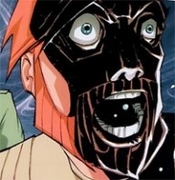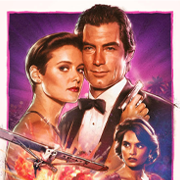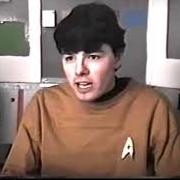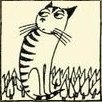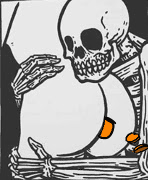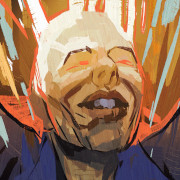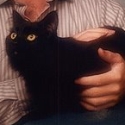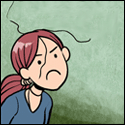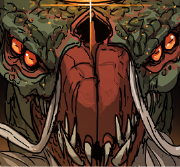|
Quantum of Phallus posted:Reading The Silmarillion at the moment and just reached the Beren and Lķthien chapter. Should I skip it and read the full book of that story instead or what do people recommend? I was gonna read that book after Sil anyway and then Children of Hurin and Fall of Gondolin but not sure which would be better. Read the chapter so you have the basic story down. The Beren and Luthien book isnít coherentóIím not saying that to insult it, itís just that a complete version of the story doesnít really exist so itís stitched together from the prose accounts that were used to make the Silmarillion + the Lay of Leithian + the super early Tinuviel stuff from Book of Lost Tales. Itís totally worth reading but can be kind of confusing, especially with changes of name. The Fall of Gondolin book is the same way, itís intertextual so youíll benefit from having the basic story down first. The Children of Hurin book actually is complete (or as complete as any of Tolkienís unpublished material was), but I still wouldnít skip the Silmarillion chapter.
|
|
|
|

|
| # ? Jun 7, 2024 22:53 |
|
Read the version in the Silmarillion, it's still a great chapter and it provides context for the events that lead into the tale of Turin. Then you can read the larger versions afterward.
|
|
|
|
Thanks!
|
|
|
|
It was indeed a great chapter
|
|
|
|
Okay, so, obviously the name Brandybuck derives from Brandywine/Baranduin, but does Meriadoc derive from Eriador in any way? (If we're going along with the conceit that Meriadoc was just Tolkien's translation of an even goofier name, can we pretend the same is true for Eriador?)
|
|
|
|
I doubt he would think so, as Meriadoc is a Westron name (actually an OE translation of a Westron name, Kalimac iirc), and Eriador is Sindarin and composed of Elvish particles such as dor and er. False friends rather than cognates. I always found it kind of hilarious how he tied himself in knots trying to make it make sense that Brandywine could conceivably be a corruption of Baranduin, without explicitly tying Old English into the linguistic history which he never went so far as to do (Ešrendil notwithstanding). Data Graham fucked around with this message at 02:04 on Feb 12, 2024 |
|
|
|
|
Eriador is either Sindarin or a Sylvan Elf word (depending on which of two notes from Tolkien on the etymology of the word you are reading) that means "Lonely/Isolated Land". The Hobbit uses the term "Lone-lands" for the same area, or the part of it east of the Shire, but not in the original printing. It was added in the 1966 revision.
|
|
|
|
Vanadium posted:Okay, so, obviously the name Brandybuck derives from Brandywine/Baranduin, but does Meriadoc derive from Eriador in any way? (If we're going along with the conceit that Meriadoc was just Tolkien's translation of an even goofier name, can we pretend the same is true for Eriador?) Meriadoc is a real name, from Brittonic languages.
|
|
|
|
Yeah, he picked a real name that conveniently works for Kalimac Brandagamba, usually called ę†Kali†Ľ which is also the westron for ę†jolly†Ľ
|
|
|
|
We donít know the Westron name for Eriador that Tolkien glosses as Lone-lands, so it could in principle agree with ďKalimacĒ in the same way as thereís superficial resemblance between Meriadoc and Eriador. But yeah I highly doubt it
|
|
|
|
More Silmarillion semi-live blogging: jfc Túrin sure makes every possible wrong choice. And yet Glaurung somehow comes off as the bigger idiot for loving around so much just to mess with Túrin.
|
|
|
|
In Glaurung's defence, it was very funny.
|
|
|
|
|
I've very much enjoyed reading this thread from the beginning but now I am Back Again so answer me these questions three: 1. I love the AinulindalŽ and Tolkien's cosmology in general. It's elegant without being shallow, clear in some places, mysterious in others, much like Christian cosmology. But! it also seems kind of....blasphemous? For a devout Catholic like JRRT, did he ever wrestle with the question of creating an alternate world creation myth complete with its own true God and subordinate pantheon? 2. My impression is that one of themes of LOTR is that "Dying is good actually, immortal life on Earth is a problem" and that is demonstrated in the separate dooms of the races of the Children of Iluvatar. If man's doom, which I take to be eternal life in the presence of God (though I don't know if he was ever explicit about that in his supplementary commentary) is so much better than that of the elves, who are bound to the fate of Arda - why'd Eru do elves like that? 3. Has there never been an english language graphic novel treatment of the LOTR? I saw some pages ago a guy was posting translated panels from a German comic from the early 80s, and I'm aware of the incredible fan-made illustrated AinulindalŽ, but it's hard to believe that any independent publisher hasn't commissioned a full on comic book version of Lord of the Rings.
|
|
|
|
There must have been one somewhere. I used to have a comic book version of The Hobbit.
|
|
|
zoux posted:I've very much enjoyed reading this thread from the beginning but now I am Back Again so answer me these questions three: I don't think it's fundamentally incompatible, is the thing. Ilķvatar as God and the Valar as angels isn't contradicted by anything in Catholic doctrine afaik. The Bible doesn't mention elves but it doesn't mention dinosaurs either.
|
|
|
|
|
A big theme/concept in the Sil is creation versus subcreation and thatís exactly what he did IRL. Itís OK to make up fairy stories and still believe in a divine creator.
|
|
|
|
Kaysette posted:A big theme/concept in the Sil is creation versus subcreation and thatís exactly what he did IRL. Itís OK to make up fairy stories and still believe in a divine creator. Yeah, his thinking was we're made in the image of God, God enjoys creating stuff so it's perfectly natural for humans to enjoy doing that as well.
|
|
|
|
I think the crime wasn't making the golden calf, it was worshiping it, so as long as you don't believe Eru's real, you're good. (no doubt plenty of theologians have argued the opposite but they're bitches)
|
|
|
|
I mean I don't care if it is blasphemous or not because I don't believe that things can be, I was just wondering if Tolkien had ever mentioned it. It may not even have occurred to him. Still, I wouldn't give de Torquemada a copy of the Sil and then let him loose at Oxford.
|
|
|
|
Tolkien was extremely, painfully Catholic. While that can have it's problems, one thing about Catholic doctrine vs Protestants, especially Evangelicals, is that all of Genesis is considered to be metaphor, myth, or spoken word histories written down after centuries a la the Iliad. So in general, there is no real concern about being blasphemous in writing a fairy story, since Catholics do not take a literalist approach to the Bible. The "avoid even the appearance of evil" stuff that is used to label Harry Potter as evil is not a problem. Tolkien outright set out to make a story that merges themes of his own Catholic religion as well as Norse and Celtic paganism.
|
|
|
|
When I first read Sil as a Catholic school teen I definitely thought that the setup was a way to do a mythological pantheon while still being a monotheist in good standing. Eru is the Elves' perception/understanding of the Christian God, and all of this is happening before the Incarnation anyway so their information is incomplete. JRRT's buddy made Jesus a lion and people weren't too chuffed about blasphemy with that. And it's not like Christianity or Judaism don't have their traditions of various subordinate classes of supernatural beings. Angel/demonology stuff, for example, though I don't think Tolkien was riffing on that exactly.
|
|
|
|
Omnomnomnivore posted:When I first read Sil as a Catholic school teen I definitely thought that the setup was a way to do a mythological pantheon while still being a monotheist in good standing. Eru is the Elves' perception/understanding of the Christian God, and all of this is happening before the Incarnation anyway so their information is incomplete. JRRT's buddy made Jesus a lion and people weren't too chuffed about blasphemy with that. I grew up evangelical, which is probably coloring a lot of this, and I recall growing up that people told me that both LoTR and CoN were christian allegory. I know JRRT's opinion on allegory now, but even then I couldn't see how it was supposed to be Christian. With Narnia it's painfully obvious, but in LoTR it's generally thematic and philosophical, rather than "Aragorn is Jesus, the King that is Returning". But I was a kid, I didn't know poo poo.
|
|
|
Arc Hammer posted:There must have been one somewhere. I used to have a comic book version of The Hobbit. There is, but not in english: https://2warpstoneptune.com/2016/04/29/the-lord-of-the-rings-comic-book-adaptation-1979-1981/
|
|
|
|
|
zoux posted:I've very much enjoyed reading this thread from the beginning but now I am Back Again so answer me these questions three: He did have some problems tying aspects of what he had done with his work to align with what he thought of as the central truth of Catholicism, which comes up on two notable topics late in life: 1: the flat Earth cosmology of the Silmarillion. Given that the general public, science, and the church had accepted modern-ish theories of how the Earth came to be, he seemed to be uncomfortable with two things: that readers would think a literal flat Earth too fanciful, and that it would be improper for the Elvish and scientific accounts to be so far separate. He starts to play around with more ideas of authorial error and textual history, but never finds a proper resolution: quote:It is now clear to me that in any case the Mythology must actually be a 'Mannish' affair. (Men are really only interested in Men and in Men's ideas and visions.) The High Eldar living and being tutored by the demiurgic beings must have known, or at least their writers and loremasters must have known, the 'truth' (according to their measure of understanding). What we have in the Silmarillion etc. are traditions (especially personalized, and centred upon actors, such as Feanor) handed on by Men in Numenor and later in Middle-earth (Arnor and Gondor); but already far back - from the first association of the Dunedain and Elf-friends with the Eldar in Beleriand - blended and confused with their own Mannish myths and cosmic ideas. 2: the creation of Orcs and other evil creatures. If evil cannot ever truly create, and only corrupt, then where exactly do Orcs come from? They can clearly think and reason, so how is it that they appear to only ever be evil servants, and is it really morally unproblematic for them to be killed willy-nilly by the heroes - and what happens to them when they die, anyway?
|
|
|
|
Tolkien did worry about the compatibility of his fictional myths and his real religious beliefs, but (as far as we can tell) mostly only when LOTR was published and god-botherers started writing him stuffy letters about it. A lot of his post-LOTR Middle-earth writings involve attempts to reread and rewrite his pre-existing myths with a serious eye to Christianity or other external/real-world ideas.zoux posted:2. My impression is that one of themes of LOTR is that "Dying is good actually, immortal life on Earth is a problem" and that is demonstrated in the separate dooms of the races of the Children of Iluvatar. If man's doom, which I take to be eternal life in the presence of God (though I don't know if he was ever explicit about that in his supplementary commentary) is so much better than that of the elves, who are bound to the fate of Arda - why'd Eru do elves like that? Read ďAthrabeth Finrod a AndrethĒ in Morgothís Ring for the explicit investigation of questions like this. (Also probably the ultimate example of Tolkien trying to explain his own myths in a Christian light, unless itís the essay where the gods argue about whether itís adultery or not for elves to remarry when their spouse dies.) the short answer is ďno one knows why men die or elves donít, except God. Deal with it/live in hope.Ē
|
|
|
|
Flappy Bert posted:readers would think a literal flat Earth too fanciful, and that it would be improper for the Elvish and scientific accounts to be so far separate. Yeah how tall and how bright were those trees anyway... skasion posted:Tolkien did worry about the compatibility of his fictional myths and his real religious beliefs, but (as far as we can tell) mostly only when LOTR was published and god-botherers started writing him stuffy letters about it. A lot of his post-LOTR Middle-earth writings involve attempts to reread and rewrite his pre-existing myths with a serious eye to Christianity or other external/real-world ideas. Given, you know, the attempted invasion of Valinor by Numenor, we know that at least some humans were jealous of the elves and fearful of death and desirous of eternal life on Arda. What about elves, did they envy Men their doom?
|
|
|
|
zoux posted:Yeah how tall and how bright were those trees anyway... Finrod says in the ďAthrabethĒ that he has a vision of a future renewal of creation in which mankind will save the elves from their presumable apocalyptic extinction with the rest of Arda. His justification for this is estel, the kind of hope based on faith rather than knowledge, which leads the elves to believe that Eru wills everything for the greater good of his children. So itís not quite envy, heís not hurrying to be dead the way men die, but he looks up to mankindís mortality as the harbinger of a higher spiritual purpose.
|
|
|
|
zoux posted:I grew up evangelical, which is probably coloring a lot of this, and I recall growing up that people told me that both LoTR and CoN were christian allegory. I know JRRT's opinion on allegory now, but even then I couldn't see how it was supposed to be Christian. With Narnia it's painfully obvious, but in LoTR it's generally thematic and philosophical, rather than "Aragorn is Jesus, the King that is Returning". But I was a kid, I didn't know poo poo. Yeah that makes sense then, like i said, Catholic doctrine about genesis for instance is that it is all myth and metaphor, but contains all of the relevant theology. God made everything, God made mankind in his own image, Man has rebelled against God, etc etc. So for Tolkien he would not have an issue exploring morality and theology in a fantasy setting. And LOTR is not just Christian, it is also Pagan. Tolkien was a giant fan of Beowulf and the Sagas, and he very directly modeled the Rohirrim after the pre-christian Anglo-Saxons, Norse, and Celts. Things like Theoden and Aragorn riding out of Helm's Deep have dual influences from both Christian traditions of hope and trust in God's intervention as well as things like the Vikings training for Ragnarok, a battle they lose, in Valhalla because going down fighting is the Right Thing To Do. The Elves also speak of fighting "The Long Defeat" against Sauron since they know the Valar will not directly intervene on their behalf, but they will continue the fight anyway. This is basically the Vikings awaiting Ragnarok, but is also influenced by the concept of Original Sin and the world being inherently marred by Sin until the Second Coming fixes it all. As a result I think people will find the influence they seek in Tolkien. As a guy with a Catholic background who is now staunchly atheist, I am much more sympathetic to the various Beowulf and Sagas influences in LOTR, and likely overemphasize them despite Tolkien's own committed Catholicism. I'm fine with that though, same way I basically ignore other parts of Tolkien I think don't make sense, like it being our own world, which just plainly does not work.
|
|
|
|
The lifespan of the Elves is the lifespan of Arda. They have all been called to dwell in an earthly paradise inhabited by their demiurgic benefactors and barely sullied by evil, and if they succumb to violence they get to convalesce there. So, by and large, they really like the world and living in it. Plus it's going to be around for a very long time, even if it's not literally forever. So they're generally okay with immortality. Men have a harder lot, so death is something of a consolation to them.
|
|
|
WoodrowSkillson posted:Tolkien was extremely, painfully Catholic. While that can have it's problems, one thing about Catholic doctrine vs Protestants, especially Evangelicals, is that all of Genesis is considered to be metaphor, myth, or spoken word histories written down after centuries a la the Iliad.
|
|
|
|
|
https://podcasts.apple.com/us/podcast/mythgards-exploring-the-lord-of-the-rings/id1490931468?i=1000645081050 Olsen starts this episode going off on a huge digression on the relationship of the hobbit and LOtR to the Silmarillion legendarium Which is something we always talk about
|
|
|
|
zoux posted:Given, you know, the attempted invasion of Valinor by Numenor, we know that at least some humans were jealous of the elves and fearful of death and desirous of eternal life on Arda. What about elves, did they envy Men their doom? Probably. "But the sons of Men die indeed, and leave the world; wherefore they are called the Guests, or the Strangers. Death is their fate, the gift of Iluvatar, which as Time wears even the Powers [that is, the Valar] shall envy."
|
|
|
|
I wonder, then, if the valar are tied to Arda til it ends? Tulkas came late, so it seems ainur can come in after the beginning, but could he equally just say 'yeah, I've had enough of this place, imma scoot, peace out' and go back to hang out with Eru?
Barry Foster fucked around with this message at 10:33 on Feb 15, 2024 |
|
|
|
|
quote:Thus it came to pass that of the Ainur some abode still with Iluvatar beyond the confines of the World; but others, and among them many of the greatest and most fair, took the leave of Iluvatar and descended into it. But this condition Iluvatar made, or it is the necessity of their love [for the World], that their power should thenceforward be contained and bounded in the World, to be within it for ever, until it is complete, so that they are its life and it is theirs. And therefore they are named the Valar, the Powers of the World. Anshu fucked around with this message at 11:24 on Feb 15, 2024 |
|
|
|
Ah, well there you go then! Suckers
|
|
|
|
|
I really love the detail of Tulkas just being some guy who arrives later. It makes me interpret the First War less as a pitched battle of good vs evil with the highest stakes imaginable, and more like it's a big collaborative project where one guy keeps messing everything up and wasting everybody's time. ManwŽ has to phone home like, hey, could you send someone over to keep Melkor in line, we're trying to form Arda here and he keeps being disruptive. And Tulkas just gets attached to the project at that point to make sure everything goes smoothly. If he hadn't managed to make Melkor go away, it probably wouldn't have been the end of the world, they'd just have sighed a lot and another bunch of fresh Ainur would have shown up eventually. Of course it gets messier later on when there's elves everywhere as potential collateral damage. It feels a bit silly to take the pathos out of the whole thing like that, but I think it meshes well with Eru explaining to Melkor that he can't escape his role as just another aspect of the music of the Ainur, and can't possibly represent a real challenge to Eru's authority.
|
|
|
|
Men's ultimate fate is to be plugged into Arda 2 while Eru creates another race to start the cycle anew.
|
|
|
|
Ilķvatar has to pick a new Menudo group out of the second-stringer Ainur to start his next world
|
|
|
|
|
Maybe we're already on Arda 2 and these are the second-stringer Ainur.
|
|
|
|

|
| # ? Jun 7, 2024 22:53 |
|
Sure feels like everyone beyond the Aratar are kinda filler And should Nienna even be on the shortlist
|
|
|





